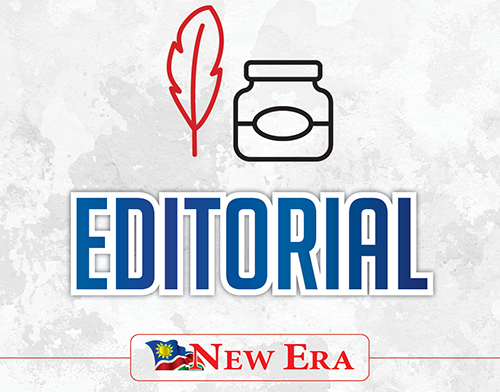Preliminary findings of the NaMedia media monitoring project, how these findings were presented, and what the organisers chose to amplify would have left a bitter taste in the mouth of any sane individual.
The Media Ombudsman undertook a study with the support of private media, foreign development agencies and a local research outfit. The ombudsman’s work is to ensure media institutions comply with the code of ethics and professional standards.
The media monitoring project focused on the 2024 National and Presidential elections.
The ombudsman stated that “the project serves as a critical tool in assessing how both legacy and online media are covering key issues during the election period. By analysing the content disseminated through various media platforms, the project aims to ensure that the media adheres to its ethical obligations, providing the public with reliable and unbiased information necessary for informed participation in the democratic process”. We are ecstatic that the partners funded this research.
Presently, very little credible research is done on the media in this country, which hampers its development, and further stifles its pursuit of professionalism.
However, the time frame between the start of the monitoring and the announcement of the preliminary findings of the study was too short to deduce valuable data from it.
While the focus is on election coverage, will this data be compared to earlier this year, or even previous years’ coverage of the same parties to draw a more measured conclusion?
New Era has made more of an effort than anyone else to not just cover, but do in-depth stories about all parties.
Even the smaller parties get their events covered by us. We published profiles of political leaders, educated people on how parties elect their leaders, the shenanigans going on in parties, and everything else in- between. We have been carrying election-related stories with our election logo from the beginning of this year, maybe something that the ombudsman and his team are not alive to.
We publish content from all political parties all the time without fear or favour.
To jump on the tired old cliché that “State-owned media” favours the governing party, and that this publication bends over backwards for Swapo, is disappointing.
The sustained pressure this publication gets from certain quarters of society who want to shape the paper in their image and likeness, and turn it into a propaganda leaflet, tells a different story. Swapo is the governing party in this country. That is not in question.
The party is also by far the biggest in the country, and has dominated post-independence politics. The government dominates many spheres. Therefore, Swapo and its members will receive a lot of attention in the news. However, the cyclical and seasonal nature of news dictates that the flavour of the week gets splashed. Should the expulsion of the Namibian Economic Freedom Fighters (NEFF) from Parliament, the first of its kind in the history of Namibia, not be news?
The fact that it created so much content, and artificially pushed up NEFF’s mentions, was not because the media suddenly were devoted NEFF members.
It was because the Electoral Commission of Namibia finally did its work.
This is the type of accountability that this publicly-funded newspaper has always stood for, and criticised from all sides of the political divide. But the ombudsman’s office should not become a player in whatever competition exists between media houses, real or perceived.
This is a danger to that office, whose existence is hanging by a thread because of the failure, of its members to play their part in funding that office and to take its work seriously.
New Era’s call on the Judiciary to be more transparent has had positive results, and we are bolstered by that success.
We will continue to hold elected leaders and political parties accountable.
Guarding the credibility of the office of the ombudsman should be important to us all.
Just like the Judiciary, the office of the Media Ombudsman should not take sides.
Privately-owned media gleefully accusing us of all manner of unprofessional conduct on a hunch and preliminary findings will never build or help this country’s media sector.
Government funds media because of the failure of privately-owned media to serve all Namibians and their abandonment of journalism and rural Namibia in pursuit of profit. Namibian, media struggles with an existential crisis. Advertisers have just about dried up, and print editions will soon become history.
Those who have waited for our demise with bated breath have been circling our raggedy tents while gleefully rubbing their hands together. But the media will prevail.
Telling truth to power and holding elected leaders to account will never go out of fashion.
This paper will continue to do that, even when its detractors, including those civil servants with political ambitions and private media, try all they can to paint us in a bad light.


